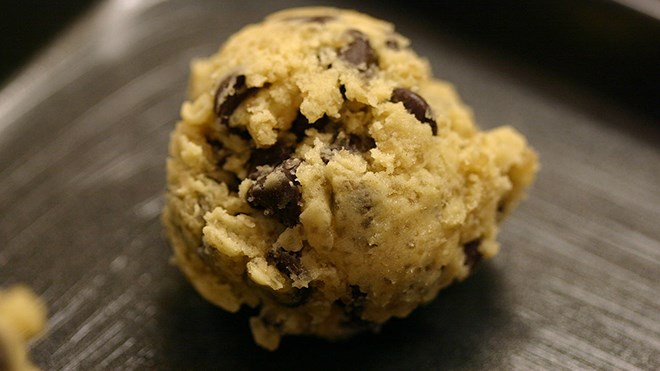You've always been told not to eat raw cookie dough. Most people (this reporter included) tend to ignore those warnings, whether it be licking the spoon or gorging on a store-bought tube of Pillsbury.
But a new alert issued by Health Canada reaffirms the danger behind eating raw dough of any kind — and it might not be for the reason you might think.
The popular belief is that the raw eggs in the dough that could make you sick, and perhaps that's true, but Health Canada says it's also true eating raw flour risky too.
“Health Canada is reminding Canadians that it is not safe to taste or eat raw dough, batter, or any other product containing uncooked flour, as raw flour can be contaminated with harmful bacteria such as E. coli.,” the agency said in an alert published June 27.
A major recall of Robin Hood all-purpose flour back in March illustrates the threat of E. coli contamination.
At that time, Smucker Foods of Canada Corp. recalled all Robin Hood-brand flour from the marketplace following an investigation by the Canadian Food Inspection Agency (CFIA) into a food-borne illness outbreak.
And the symptoms of infection, which can appear within one to 10 days after contact, are not pleasant.
At the lighter end, E. coli infection can bring about nausea, headache and potentially severe stomach cramps. At its worst, the bacteria can cause vomiting and watery or bloody diarrhea, making you wonder if that spoonful of delicious cookie dough is worth it.
Health Canada says aside from not eating the raw dough, there are additional steps you can take to prevent E. coli infection:
- Keep raw foods, including flour products, separate from other foods while preparing them to prevent cross-contamination.
- Use separate bowls, measuring cups and utensils to keep flour, raw dough and raw batter separate from ready-to-eat food.
- Do not add flour to foods that will not be cooked, such as milkshakes and ice-cream mixes.
- Bake or cook items containing flour, including flour used for thickening.
- Follow package directions on products such as cake mixes for proper cooking temperatures and specified times.
Ultimately, “common 'kill steps', such as boiling, baking, roasting or frying, that are often used during food processing and preparation will kill bacteria that may be present in raw flour,” says Health Canada.
While anyone can become infected with E. coli, young children aged five and under, older adults and people with weakened immune systems are more likely to get sick and their symptoms may be more severe.
In severe cases of illness, some people may have seizures or strokes, need blood transfusions and kidney dialysis or live with permanent kidney damage. In severe cases of illness, people may die.
Health Canada advises you contact your healthcare provider if you think you have become ill from eating raw dough or batter, or from handling or consuming a raw flour product.
Of course, that can all be avoided simply by rethinking your choices the next time you walk by those tempting tubes of raw cookie dough at the supermarket.
At least in this reporter's case, Health Canada may be fighting a losing battle on this one.
